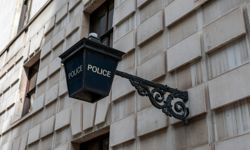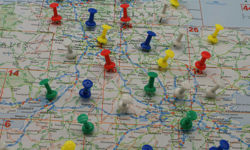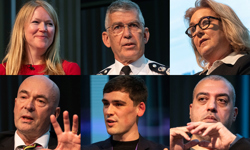
The SoE has welcomed today’s report by the Royal United Services Institute for Defence and Security Studies (RUSI) examining the literature on the role of media in terrorism as a starting point for a conversation in the industry.
But it cautions on attempting to hold the mainstream media solely to account for the complex issue of how terrorism is reported in a liberal democracy that values freedom of expression and the public’s right to know.
“The problems raised by copycat terrorist acts and the spread of the ideals of terror are complex and we should be wary of a rush to try to create a one-size fits all set of rules and regulations for the media even if self-imposed,” commented Ian Murray, executive director of the SoE.
“However, the Society of Editors certainly recognises, as do the majority of journalists, that covering terror attacks, their aftermath and reporting on those behind such atrocities has to be considered in the light of being part of the solution and not doing the terrorists’ work for them. The Society stands ready to further the conversation on this issue.”
The report – Terrorism and the Mass Media: Examining the literature on the role of the media in terrorism – was compiled by Jessica White, a research fellow in RUSI’s Terrorism and Conflict group, and commissioned by the Met Police’s Counter Terrorism Policing Unit. It was the subject of a webinar hosted by RUSI yesterday with a panel of experts that included the Society of Editors.
The report’s publication followed an appeal by Met Assistant Commissioner Neil Basu – who also took part in yesterday’s RUSI webinar – speaking at last year’s Society of Editors’ conference in London for the media to work to create guidelines for covering terrorism similar to those agreed with The Samaritans for reporting suicides.
The SoE staged sessions at previous conferences looking into the subject of reporting terrorism. In 2017 a panel debated ‘Are we doing the terrorist’s job for them?’. A year later the conference discussed the coverage of the Manchester Arena bomb outrage that led to the Kerslake Inquiry that was critical of the media.
In its key findings the RUSI report states:
- Mass media can provide the publicity which terrorists seek and there is a clear synergy between the media’s desire for a sensational story and terrorists’ desire for publicity.
- That the media can amplify the negative impacts of terrorism and collective levels of public fear. This is primarily due to its role in broadcasting the story to more people than would have been immediately affected by the attack.
- Journalists are not neutral. Due to their role in producing news and influencing opinion, journalists can become participants in the radicalisation process. Their discourse and how they frame their reports can have an impact.
- Mass media reporting can contribute to imitation of terrorism.
- Ethical codes of practice and responsible reporting guidelines have a positive effect on minimising the negative impacts of reporting. Many news organisations have adapted responsible reporting guidelines for different circumstances, such as violent crime and suicide, but many are not sufficiently adapted for reporting on terrorism specifically.
- Ultimately, it must be recognised that media reporting on terrorism does not affect everyone equally or all the time or always to the same degree. The recommended improvement of responsible reporting guidelines should be balanced with independent reporting and public interest.
The report recommends:
- Reporting should be accurate, balanced, unsensational, and contextual and avoid emotive language, except when reporting on what others (for instance, politicians) have said.
- Journalists should not report in a way which glamourises or demonises perpetrators of attacks, as this could encourage imitation or perpetuate prejudices.
- Journalists should be as objective as possible, examining their own preconceived biases and possibly unsubstantiated theories. They should also be up front about their level of expertise on terrorism as well as the sources of their information, to engage the public in a critical debate about the issues.
- Reporting on terrorism needs to be proportionate. Overemphasising the threat of terrorism amplifies its negative impact and may inadvertently advance terrorist objectives.
- Journalists should be careful of misinformation from terrorist propaganda, the government or other potential actors such as foreign governments. Misinformation is a serious risk to independent reporting and public understanding.
- Self-imposed ethical codes of practice and responsible reporting guidelines are important to mitigate the negative impacts of reporting on terrorism. These guidelines should be flexible, informed and conscious of the challenges of reporting on terrorism, a particularly nebulous topic. Responsibility for content is necessary, while remembering that editorial independence is essential to modern democracy.
The report added that police and security authorities can help to mitigate misdirection and the spread of misinformation, which threatens independent reporting and public knowledge, by engaging the public and press with timely and accurate information in the case of terrorist attacks.
“Unfortunately, digital media sources not connected to traditional mass media are often not bound by the same ethical guidelines or supported by the same journalistic expertise as traditional news media outlets, even though these platforms play a significant role in filtering information and framing news stories. This presents a significant challenge, which needs to be addressed in future research,” the report added.
Ian Murray said: “While the mainstream media will I feel certain recognise the importance of maintaining public confidence through the continued provision of edited, balanced, researched news and information on terror subjects, the same cannot be said of social media where rumour and misinformation abound.
“This is an important debate and it is gratifying to see that the report, while calling on the mainstream media to produce self-regulation in the form of guidelines for reporting terror, also recognises the public’s right to know and the role an independent media plays in a free society.”












